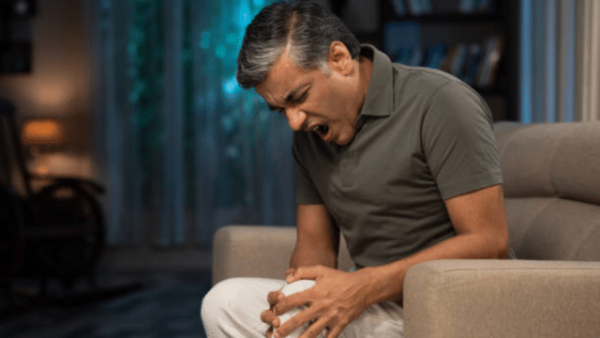
The winter season can be tough, especially for people with joint pain, as it makes their pain worse. This happens due to the severe drop in temperatures and other changes in the environment during the winter season. As the weather changes, joint pain can worsen, whether from underlying arthritis, past injuries, or normal wear and tear. The winter months can be made more comfortable by comprehending the causes of this seasonal annoyance and exploring cost-effective remedies.
Causes of winter joint pain
Temperature changes: As the temperature drops, the weather becomes cold, making the blood vessels narrower. This reduces blood flow to the joints and makes them stiff and painful. Also, winter also causes changes in the atmospheric pressure which causes the tissue around joints like muscles and tendons to expand slightly. This expansion increases pressure on the joints and makes movement uncomfortable.
Blood flow issues: In the cold weather, blood circulation becomes slower and sufficient oxygen and nutrients might not be transported to the joints, leading to stiffness and discomfort. Poor circulation can also aggravate inflammation and cause joint pain.
Physical activity: Colder temperatures and shorter days in the winter season result in people putting off exercising. This lack of movement can weaken the joints and make them stiff. No exercising also leads to an increase in weight, along with eating unhealthy and fried food. Such weight gain puts extra pressure on joints, especially knees, hips, and lower back.
Nutrition deficiency, immune system: In the winter season, the sunlight absorbed by the body is less and can result in lower vitamin D levels. Low vitamin D levels can version joint pain, especially in people with arthritis. Cold temperatures can also make the immune system work harder, cause inflammation, and increase joint pain.
Remedies for winter joint pain
Stay warm: Joint pain can be reduced by keeping the body warm. Wearing layers of clothing, using a heated blanket, or a para in a bath can help relieve the pain in joints.
Stay hydrated: It is important to drink enough water to keep the cartilage in the joints lubricated. Proper hydration can help reduce stiffness and friction in the joints.
Exercise regularly: Doing gentle exercises like walking, yoga, or stretching can strengthen the muscles that support joints. Staying active also helps in keeping the joints flexible and reducing their stiffness.
Eat a healthy diet: It is important to include anti-inflammatory foods such as fruits, vegetables, fish, and nuts in a diet. Avoid eating too many sugary or processed foods as they can make inflammation worse.
Take pain medication: There are over-the-counter, non-steroidal, and anti-inflammatory drugs (NSAIDs), such as ibuprofen that can help relieve joint pain and reduce inflammation.
Consult orthopedic: Joint pain that is severe or persistent should not be ignored. It is advisable to see a doctor if discomfort becomes incapacitating or interferes with day-to-day activities. More effective management of winter-related joint discomfort may be possible with the use of physiotherapy, prescription drugs, or individualized treatments.
The winter season can aggravate joint pain, but understanding the causes and taking proper care can help reduce the pain. Staying warm, exercising, eating, healthy, and staying hydrated are quite simple ways to manage joint pain and can be done by everyone. Incorporating these minor changes in the daily lifestyle will help people with joint pain more comfortable and enjoy the winter season. Short lifestyle changes like using heat therapy, dressing appropriately, and continuing to be active indoors can have a big impact. Even while stiffness is normal sometimes, persistent pain should never be disregarded, and seeing a doctor can help treat underlying issues. Even in the harshest months, joint health can be preserved with the right approach, allowing an active and without pain winter.
Dr. Sinukumar Bhaskaran, Consultant - Adult Joint Replacement & Reconstruction and Robotic Arthroplasty (Hip & Knee), Manipal Hospital, Kharadi, Pune
 The winter season can be tough, especially for people with joint pain, as it makes their pain worse. This happens due to the severe drop in temperatures and other changes in the environment during the winter season. As the weather changes, joint pain can worsen, whether from underlying arthritis, past injuries, or normal wear and tear. The winter months can be made more comfortable by comprehending the causes of this seasonal annoyance and exploring cost-effective remedies.
The winter season can be tough, especially for people with joint pain, as it makes their pain worse. This happens due to the severe drop in temperatures and other changes in the environment during the winter season. As the weather changes, joint pain can worsen, whether from underlying arthritis, past injuries, or normal wear and tear. The winter months can be made more comfortable by comprehending the causes of this seasonal annoyance and exploring cost-effective remedies.